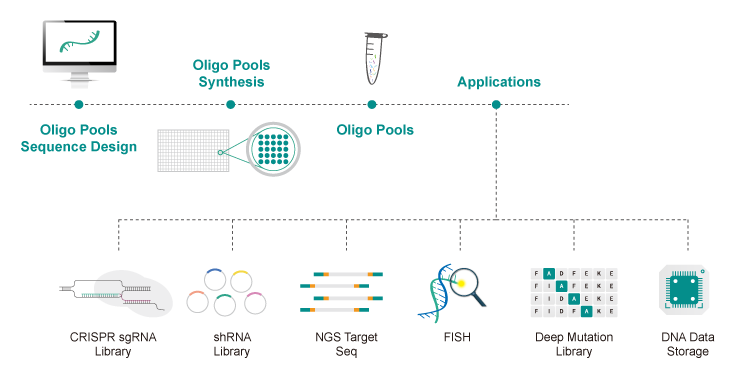In the rapidly evolving landscape of biotechnology, certain topics remain shrouded in mystery. One such topic is oligo pool synthesis—a process that holds immense potential yet often escapes the limelight. What makes this technology so pivotal in today’s market? As we delve deeper into its characteristics and implications, a clearer picture begins to emerge.
The Essence of Oligo Pool Synthesis
oligo pool synthesis refers to the simultaneous production of multiple oligonucleotides, which are short sequences of nucleic acids essential for various applications in genomics and synthetic biology. This innovative approach not only enhances efficiency but also reduces costs significantly compared to traditional methods. In terms of market attributes, oligo pool synthesis stands out due to its scalability and versatility—qualities that make it indispensable for research institutions and commercial enterprises alike. Furthermore, as demand grows for rapid genetic analysis and custom DNA constructs, logistics management becomes increasingly critical in ensuring timely delivery and quality assurance.
Oligo Pool Synthesis Meets Logistics Management

The intersection between oligo pool synthesis and logistics management reveals several key features that enhance operational effectiveness. First, the ability to produce large quantities of diverse oligonucleotide sequences necessitates an efficient supply chain capable of handling complex orders with precision. Additionally, real-time tracking systems play a crucial role in monitoring inventory levels while minimizing delays during transportation. By integrating advanced logistical strategies with oligo pool synthesis processes, companies can ensure optimal resource allocation while maintaining high standards for product integrity throughout distribution channels.
The Role of Synbio in Logistics Management
Synthetic biology (Synbio) further amplifies these logistical advantages by introducing automation and data-driven decision-making into the mix. With Synbio technologies enabling more streamlined workflows—from design through production—logistics management benefits from reduced lead times and enhanced predictability regarding project timelines. Moreover, as Synbio continues to evolve alongside advancements like machine learning algorithms for predictive analytics, organizations can better anticipate fluctuations in demand or potential bottlenecks within their supply chains.
Conclusion
In conclusion, understanding how oligo pool synthesis interacts with logistics management unveils significant insights into both fields’ future trajectories. The synergy between these domains not only fosters innovation but also ensures that biotechnological advancements reach their intended markets efficiently—and effectively—ultimately driving progress across various sectors reliant on genomic research and application.

